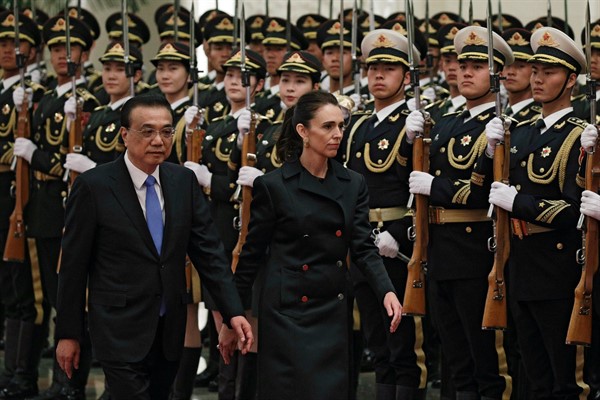Political scientist Ian Bremmer remarked in a Twitter post in July that the relationship between the United States and China has “way too much (mostly economic) interdependence” for there to be a new Cold War. Instead, he posited, “It’s a failed marriage with the family still living together. How the kids turn out is an open question.”
The “kids” in this analogy are the small and mid-sized open economies of the Asia-Pacific—countries that depend as much on the U.S. for technology and national security as they do on China to buy their exports. A prime example is New Zealand, which is as close diplomatically to the West as it is economically to China. With Prime Minister Jacinda Ardern expected to win reelection by a landslide in elections scheduled for later this month, her administration will have some important decisions to make about its policy toward China.
Polling for the Oct. 17 general election, which was delayed last month due to the coronavirus pandemic, currently has Ardern’s Labour Party at 48 percent, with the center-right opposition National Party at 31 percent. Labour currently governs in coalition with the nationalist New Zealand First party, but the latest polling shows that Labour is likely to win an outright single-party majority in Parliament, which would be the first such victory by any party in New Zealand in over 20 years. Such a commanding win could allow Ardern to craft an updated China strategy—one that reflects recent tensions between China and Western developed nations, but also accounts for the importance of New Zealand’s economic ties with Beijing.

